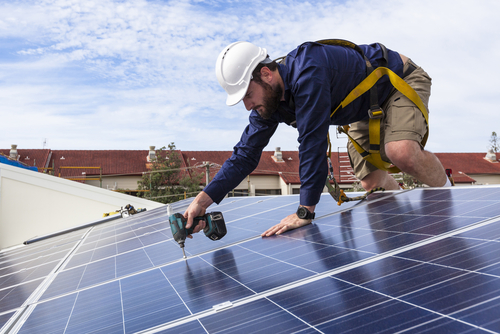Sustainability has become a trend, Both commercial and residential real estate owners are turning to solar energy to power their buildings and homes. Solar panels are a viable option for a more relaxed lifestyle. This is not only for the long-term impact on your electricity bill, but also thanks to their power to increase your property’s value by tens of thousands of dollars.
Is this new type of installation covered under the typical insurance policy and how does it affect the insurance premium?
If you are interested in going solar and would rather have your own system instead of using solar leases or PPAs (power purchase agreements), you’ve probably seen quotes for a 6-kilowatt system. This is one of the most popular solar systems in the U.S.
It produces about the right amount of electricity to meet the daily needs of a typical household. A 6-kilowatt array costs around $18,000 before tax incentives and rebates; a big chunk of those who resort to solar power install bigger systems, 10 kilowatts or larger, the cost of which equates to several tens of thousands of dollars.
Under most home insurance plans, rooftop solar panel systems become part of the home they’re installed on, which means that you won’t be needing an add-on (rider) and shouldn’t increase your premium. However, every insurance policy is different, so just to make sure, call your agency and ask before starting your project.
Rooftop solar arrays are not the only type of solar panels generating energy. Ground mounted solar panels and solar panel carports, for example, might have different insurance requirements. In case they aren’t, you should be able to get an add-on policy. This solution applies also in case your system is large enough to require its own coverage.
Another thing to look into is whether the insurance policy covers the installation process. The North American Board of Certified Energy Practitioners (NABCEP) offers a certification program for solar installers, known as the Solar PV Installation Professional Certification, which offers a warranty that will cover you in the event there is damage to your roof or your panels resulted from the installation process.
You can also install a system on your property without actually owning it. This is accomplished by leasing. The company with whom you sign the agreement owns the panels and is responsible for their maintenance. In other words, this way you won’t need to worry about your home insurance covering the solar panels.
Renters live in a separate universe, for them to have access to solar energy means to talk their landlords into it. Some will turn out to be true green energy fans, while others will oppose it. Renters can try the portable solar panels as these don’t damage the property in any way and thus they don’t need to discuss the matter with the landlord.
But portable systems also require investing in additional devices: charge controller or solar power generator, a battery and the inverter to convert the power output. Renters’ solar energy access also depends on the type of house they live in: those living in a single-family house have more options than those living in apartments. As always, check with your landlord before making any improvements to your residence, even if they help save the planet.
